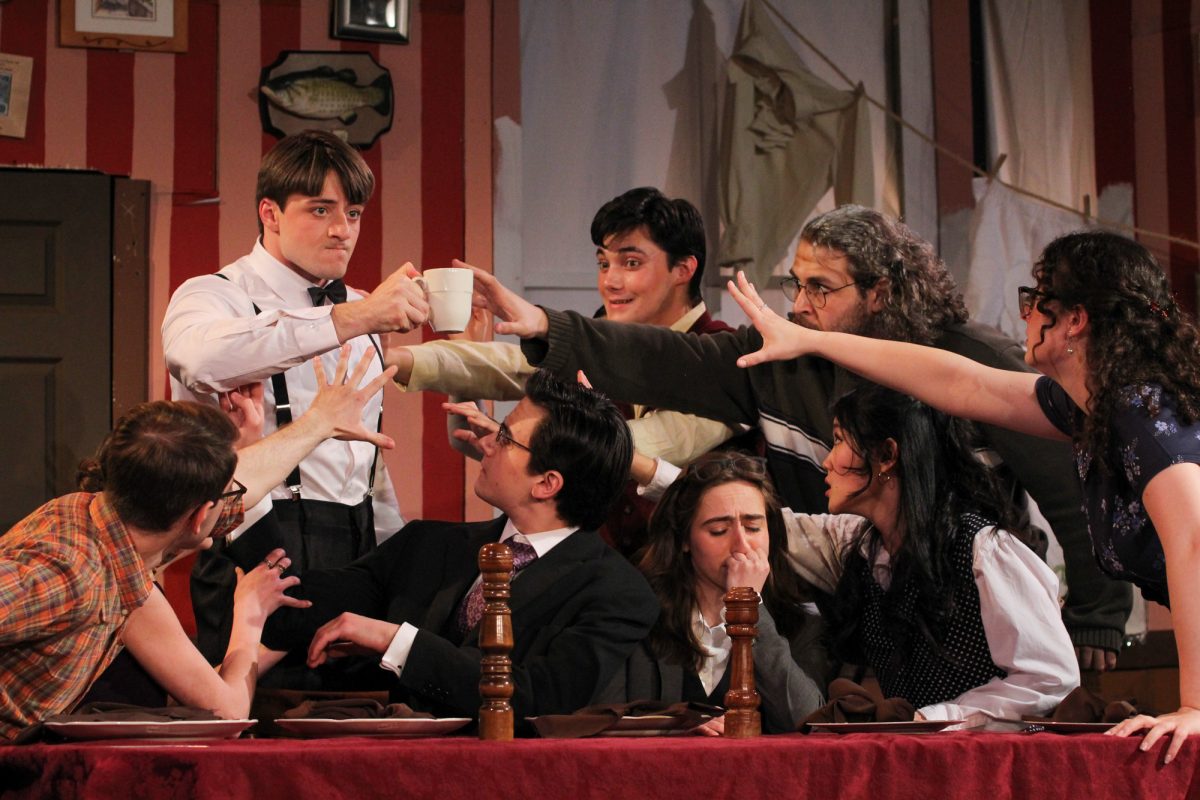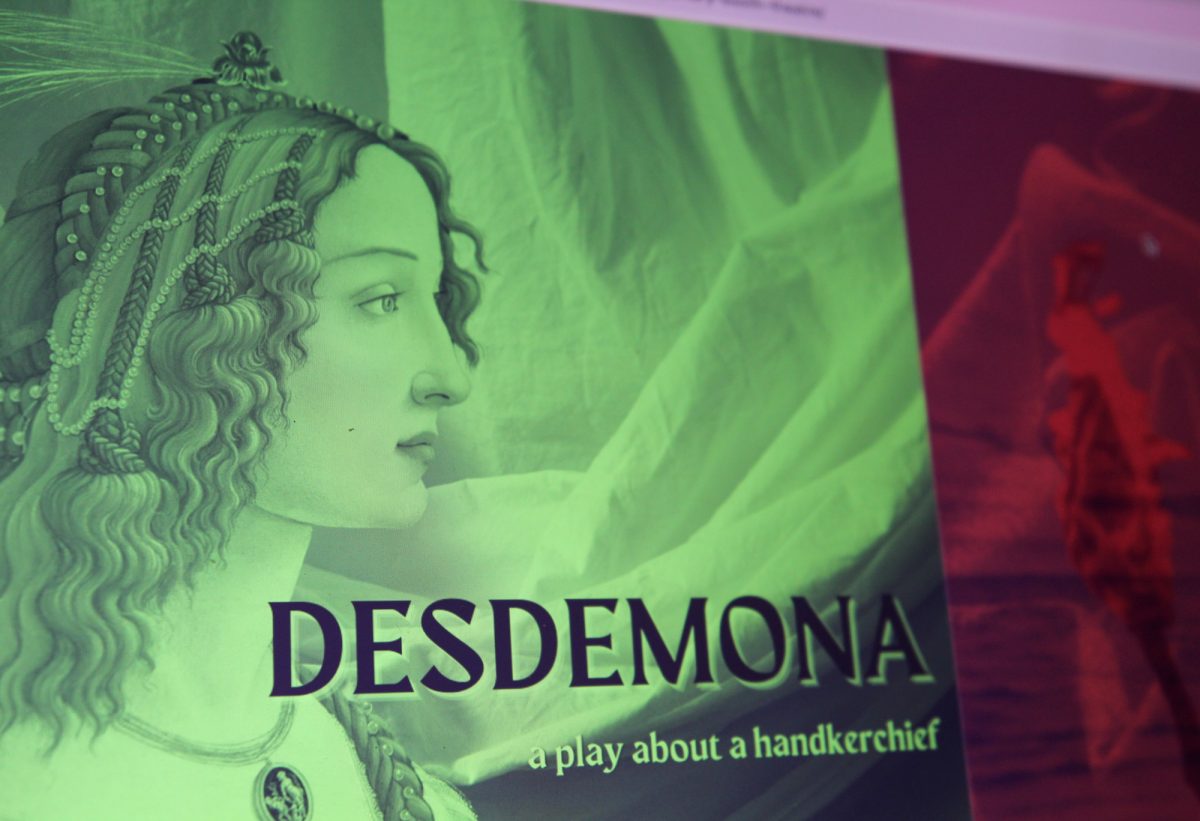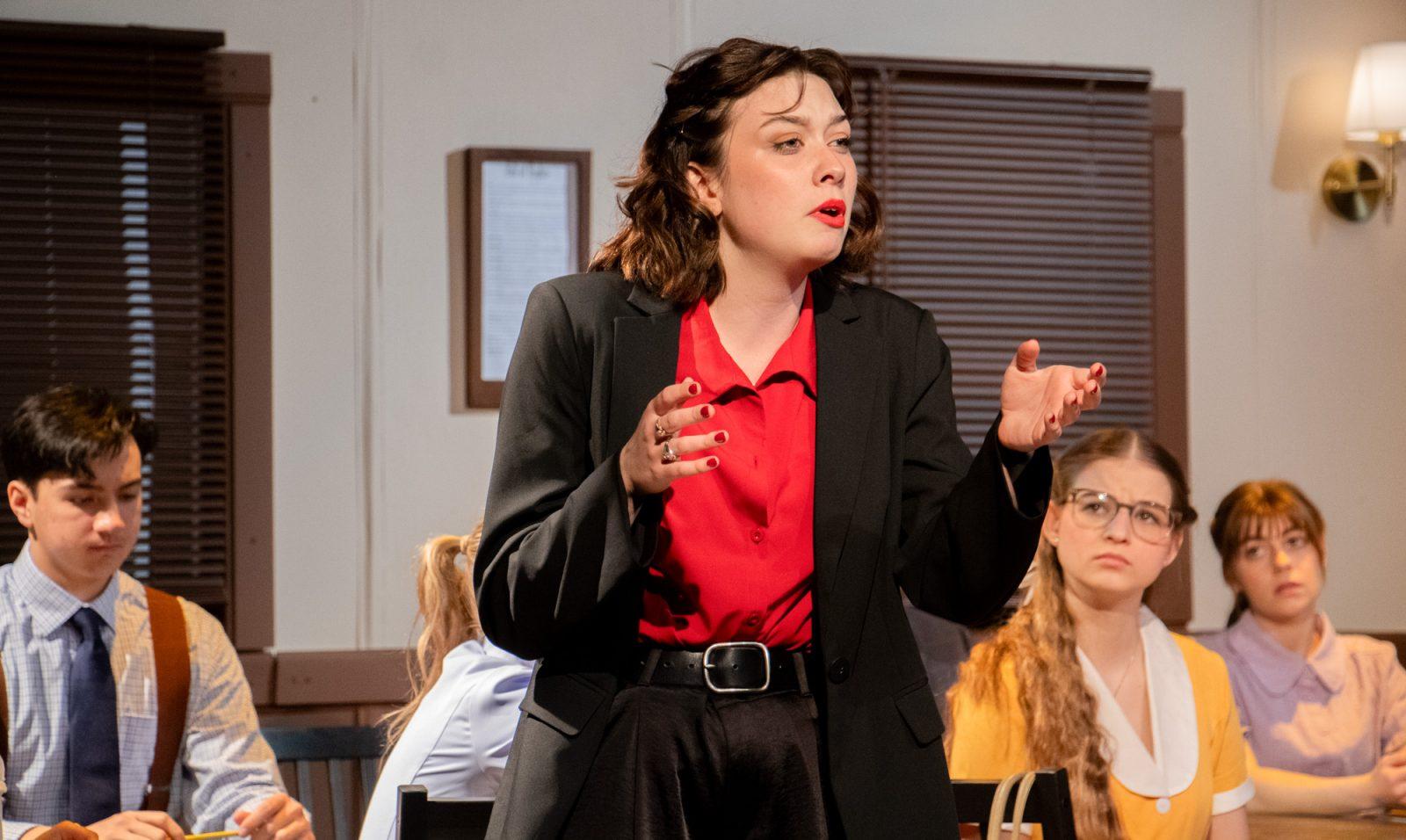Oh, to be young on a Friday night: pop quizzes, lessons on institutional racism, a grown man’s mental breakdown and crisis of identity. Disillusionment in the American education system has never been as entertaining as it is in “Mr. Parent.”
The eponymous Maurice Emmanuel Parent took the stage of Boston Playwrights’ Theatre on Oct. 20 for one of the show’s final performances, which ran from Oct. 10 to Oct. 22.

“Mr. Parent” — a collaboration among Parent, playwright Melinda Lopez and director Megan Sandberg-Zakian — is a one-man performance reflecting on Parent’s years as a substitute teacher in Boston Public Schools. In 2011, when Parent couldn’t make ends meet solely through acting, he turned to teaching, while continuing to act on the side.
The play opens with Parent — dressed in his best teacher’s outfit: a plaid button-down tucked into dark jeans — addressing the crowd directly, asking how we were doing and exchanging other pleasantries.
From there, the first act slowly meanders through Parent’s backstory. This background is vital, since his identity and sense of self is one of the show’s strongest themes, but the exposition wasn’t nearly as compelling as the coming tales from his time in the classroom.
The show’s comedy is hit or miss, especially in the beginning. Parent certainly has charisma and energy, and he traverses the stage with gravitas. But as the only man on stage in a small theater, the more bombastic, physical comedy is laid on a little thick at times.
Once Parent arrives at the point of the story where he becomes a teacher, his performance takes off. He careens through more than a dozen characters, several different locations and multiple time periods. The comedy picks up, too — the funniest jokes come from his snarky, impatient and acutely self-aware impersonations of the children whom he taught and the stories he recalls.
Self-awareness is key to Parent’s performance. Early on, Mr. Parent states that he only took the teaching job for the money. He jokingly mocks his fellow staff members, he — rightfully — complains about the job conditions and he makes it clear that theater is and always will be his number one passion.
But by the midpoint of the play, Mr. Parent is a supportive, encouraging teacher who lets students call him “Mr. Maurice.” He even chides other educators who teach only for the money.
Then come the budget cuts. The school becomes a toxic workplace, and “Mr. Maurice” becomes “Mr. Parent” again.
As Parent recalled this turning point, which caused him to become stricter and colder toward his students, his voice grew grave and heavy. In these solemn moments of reflection, you realize that this isn’t another character for Parent: he lived this pain.
The final act of the play brilliantly juxtaposes positive anecdotes of Parent’s life as an actor with devastating stories of the students whom we’ve been following throughout the show. Mr. Parent becomes increasingly jaded, while his favorite students have run-ins with gun violence and law enforcement.
The play is built upon these moments: Parent conveys how the stress of working in an underfunded public school system broke him.
Toward the end of the play, he called for a pop quiz. This wasn’t the first time he cleverly interrupted his narrative by having a production assistant roll out a whiteboard so he could ask the audience questions about the history of segregation in Massachusetts.
However, before the final pop quiz started, he changed his mind and asked that the whiteboard be rolled away. He apologized to the audience, took a seat and spoke candidly: he admitted he felt like a failure for not lasting as a teacher. At first I thought it was simply part of the act, but then tears started to glint as they rolled down his cheek, and I wasn’t so sure.
Part of the magic of a one-man performance is the actor’s ability to go off script. With no other actors relying on his cues, Parent was able to interject history lessons explaining jokes to younger audience members and riff off of jokes that seem to land especially well and pause to catch his breath.
With all the changes, I wondered if it was an elaborate setup to prime us for the finale.
Regardless of whether or not the entire show was scripted, Parent’s dramatic performances are captivating, devastating and moving.
If you’ve ever wondered what your teachers think about you, Mr. Parent has the answer: They think you’re kind of annoying, and they will never stop caring about you.






























































































































